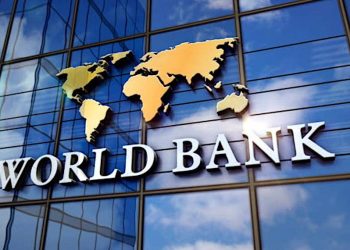According to the United Nations Conference on Trade and Development (UNCTAD), shipping accounts for 90% of global cargo movement, making it an essential enabler of international trade and the global economy. Even though many economic and social activities were halted during the peak of the Covid-19 pandemic, the shipping industry continued to function because of its inevitability. However, there were major disruptions in the global supply chain; the shipping industry experienced an unprecedented cargo backlog, port congestion, crew change difficulties, and other factors that nearly spiralled the global supply chain out of control.
While the shipping industry is still recovering from the devastation caused by the Covid-19 pandemic, it has been rocked once more by an unexpected conflict between Russian and Ukrainian troops. These two nations are critical to the maritime transport industry and global trade. As a result, the upheaval within their sub-region is having an impact on global trade, economies, and shipping, as we are observing today.
It is important to recognise that Russian and Ukrainian seafarers account for nearly 15% of the 1.9 million seafarers in the maritime industry, with a large proportion serving as officers and ranked crew. In the last two years, Russian firms own approximately 2,000 out of the about 44,000 cargo and tanker vessels operating around the globe.
The Russian-Ukraine coastal domain which is part of the Black Sea is a vital trans-oceanic trade route that connects Europe and Asia, transporting most of the world’s oil, steel, energy, and agricultural products. As a result of the Russian-Ukraine aggression, the Black Sea enclave has become a hotspot for violent attacks. In addition, Russia, and Ukraine account for more than a quarter of the global wheat trade and about one-fifth of the global corn trade. They are also responsible for 1% and 5% of global maritime trade, respectively. Russia accounts for nearly 11.3% of global crude oil trade and 9.7% of global refined product trade.
The importance of both countries to the global economy and shipping industry cannot be downplayed. Consequently, the raging conflict between Russia and Ukraine will continue to have far-reaching implications for the shipping industry, international trade, and global economies.
Impact on Global Maritime Trade
The shipping industry is still reeling from the global labour shortage caused by the Covid-19 pandemic. However, because about 15% of the globe’s seafarers are either Russian or Ukrainian, there is a risk of further labour shortages, which could disrupt the global supply chain. This is because western sanctions against Russia have made it difficult to pay salaries to Russian seafarers, whereas a significant number of Ukrainians are responding to their President, Volodymyr Zelensky’s, call to arms in defence of their territorial sovereignty.
Freight rates are skyrocketing for a variety of reasons. Among these reasons are the fact that merchant ship owners, commodity, and oil traders, as well as shipbrokers, are wary of doing business with Russia due to economic sanctions imposed by the western nations, which could have serious consequences for their businesses. There is also a high derived demand for vessels, a high cost of bunkering, an increase in cargo re-routing, and transit times, all of which will eventually increase freight rates. Major shipping lines increased freight charges to more than 20 times the initial freight cost during the height of the Covid-19 pandemic. The Russian-Ukrainian conflict, on the other hand, has worsened an already dire condition.
There is global uncertainty regarding crude supplies and commodities such as wheat and corn because of trade volumes emanating from both Russia and Ukraine. The closure of strategic Ukrainian ports in the aftermath of the invasion, as well as the refusal of major shipping lines to call at Russian ports or suspend their operations, exacerbated the situation. It is estimated that vessels accounting for about 62 % of the global fleet market have suspended operations in Russia. Western ports, particularly those in the United States, European Union, and the United Kingdom, have barred all Russian-flagged or owned vessels from calling at their ports. In addition to this, Russian-flagged vessels have been barred from accessing maritime support services such as bunkering, ship repair, insurance, and surveying by classification societies. As a result of the high level of trade restrictions and disruptions, the cost of petroleum products and grains has undoubtedly increased, forcing buyers to explore new markets.
According to the International Chamber of Shipping, the Protection and Indemnity (PI) clubs are reluctant to cover vessels navigating the Black Sea; they either refuse to cover such vessels or charge exorbitant premiums for war risk. Reportedly, missiles have struck five ships at the Black Sea, resulting in severe casualties to seafarers, thus far. Most vessels are not sailing through some parts of the Black Sea because of the likelihood of being hit by missiles or underwater mines.
The International Maritime Organization (IMO) estimates that approximately 2000 seafarers were stranded aboard 94 vessels in Ukrainian ports during the early stages of the conflict. However, since April 20th, 2022, about 1500 seafarers have been evacuated, with nearly 500 remaining onboard the 84 merchant vessels that are still stranded. In the end, these vessels may struggle to service their capital repayments, causing them to declare bankruptcy.
Impact on Ghanaian Maritime Trade and Economy
The African Development Bank (AfDB) reports that wheat prices have increased by 62% since the war began, fertiliser prices have increased by 300%, and maize prices have increased by 36%. Also, Ukraine accounts for roughly 60% of total iron ore and steel imports into Ghana; Russia accounts for roughly 30% of imported grains, 50% of flour, and 39% of fertiliser. Since the eruption of the Ukraine-Russia conflict, the price of a barrel of crude oil has risen to over $100.
Ghana is largely an import-dependent economy, so this situation has a direct impact on its shipping industry and economy in terms of freight charges, revenue generation, and commodity prices, including the prices of finished petroleum products, particularly due to the trade volumes emanating from Russia and Ukraine. The operational and voyage costs of vessels navigating through parts of the Black Sea have risen due to high insurance premiums on war risks, the high cost of bunkering, and the fact that these vessels may have to discover alternative shipping routes and will likely experience longer voyages than before. These increased expenditures will result in higher freight rates, which will eventually be passed on to the consumer, which will raise inflation rates. High freight rates, according to studies, account for 40% of the total cost of goods to the consumer. It is trite that countries that import more of their consumption will face higher inflation as shipping prices rise. Based on the economy’s structure, this has led to Ghana’s high inflation rates. Moreover, the disruption caused by the conflict has increased demand for these goods and has contributed to an increase in inflation rates as well. If the Russian-Ukrainian conflict lingers, Ghanaian consumers will bear the brunt of the consequences.
It will also have a negative impact on the Ghanaian currency since importers would have to spend more in foreign currency to import the same quantity of products due to the significant increase in freight rates. As a result, unless Ghana finds an innovative solution to this predicament, its currency would stay under pressure against the major international currencies.
Vessels that would have called at Ghanaian ports to supply finished petroleum products, grains, fertilisers, iron ore, steel, and other commodities sourced from both Russia and Ukraine are likely to be considerably curtailed. Customs tariffs and other port-related taxes will be reduced, as expected. Revenue streams that may accrue to state agencies such as the Ghana Ports and Harbours Authority (GPHA), the Ghana Maritime Authority (GMA), and the Ghana Shippers Authority (GSA), as well as the private sector performing other auxiliary services within the supply chain, such as warehousing, freight forwarding, stevedoring, and so on, are also expected to decline. This will primarily have an impact on Ghana’s already stifled revenue mobilisation efforts to achieve the necessary fiscal consolidation and growth. Ghana is currently seeking International Monetary Fund (IMF) assistance due to its inability to generate sufficient revenue to meet its growing fiscal commitments.
Conclusion
The covid-19 pandemic, combined with the Russian-Ukrainian war, has wreaked havoc on the shipping industry and national economies. The International Maritime Organization (IMO) and the United Nations (UN), in collaboration with other stakeholders, must find a resolution to this growing concern and become more responsive to comparable future occurrences.
However, in Ghana, the strategic emphasis must be on long-term sustainable solutions rather than short-term fixes. This may be accomplished systematically by transitioning the country from a consumption to a production paradigm, with the private sector serving as the primary anchor. Because all the primary production factors are available, the country should be able to produce more than it consumes. While at it, it is critical to determine which products the country has a competitive advantage to produce for the international markets. This effort can achieve four primary goals: reducing over-reliance on imported products to limit external shocks and control inflation, increasing the country’s revenue-generating capacity, exporting some of the products to earn foreign exchange, and finally addressing the nation’s balance of payment deficits to strengthen the Ghanaian Cedi.
More significantly, transitioning Ghana to a production model should be aligned with the country’s educational strategy by expanding Science, Technology, Engineering, Mathematics (STEM) and Agribusiness at the foundation level. Ultimately, the goal is to transform the structural features of the Ghanaian economy to lessen any emerging external vulnerabilities.















